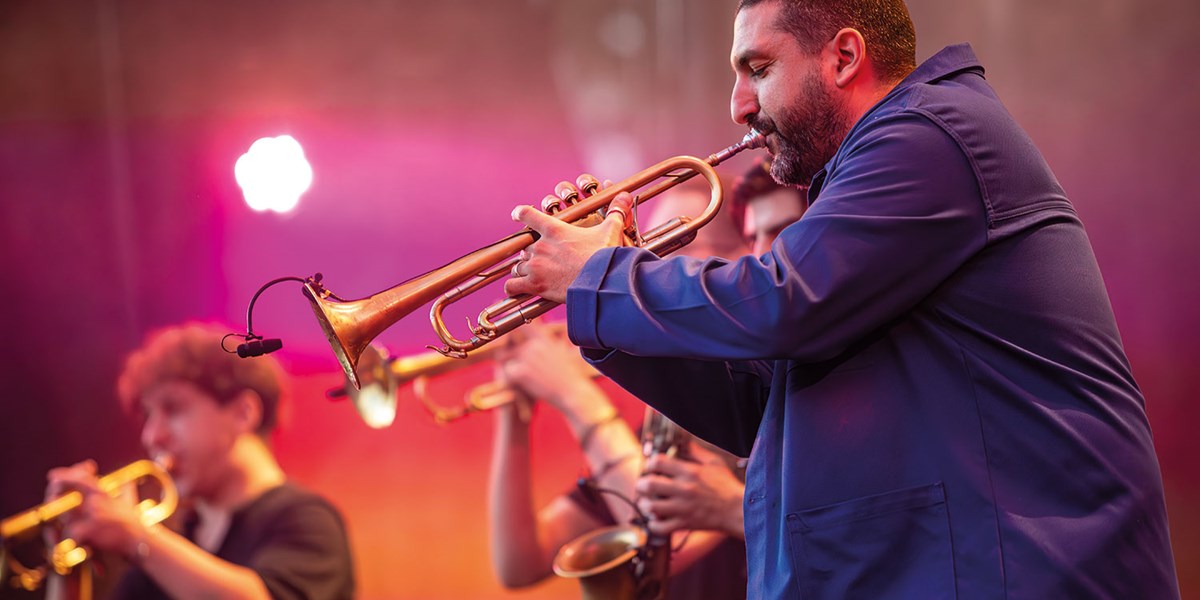Thursday, October 3, 2024
Ibrahim Maalouf: “I’ve always believed that music should be limitless… i can blend my trumpet’s melodic lines with the sharp, rhythmic beats of rap”
By Daniel Brown
Ibrahim Maalouf has drawn on everything he’s learned during his stellar career to make what might be his crowning achievement, a homage to his ancestry that is more lyrical than any instrumental album can rightly claim to be

Maalouf performing in Arès, France, July 2024 (Franck Perrogon)

Register now to continue reading

Thanks for visiting the Songlines website, your guide to an extraordinary world of music and culture. Sign up for a free account now to enjoy:
- Free access to 2 subscriber-only articles and album reviews every month
- Unlimited access to our news and awards pages
- Our regular email newsletters

